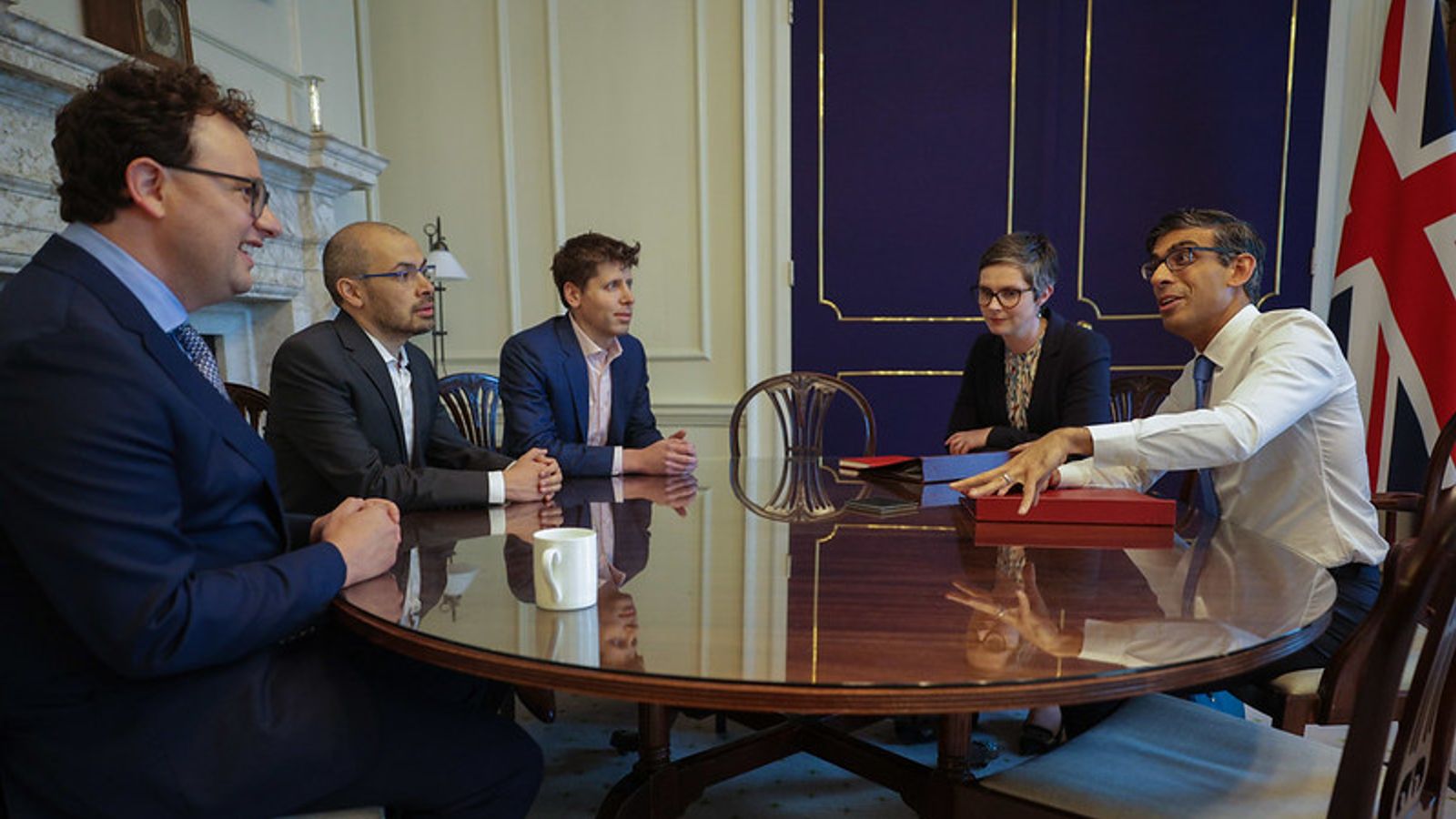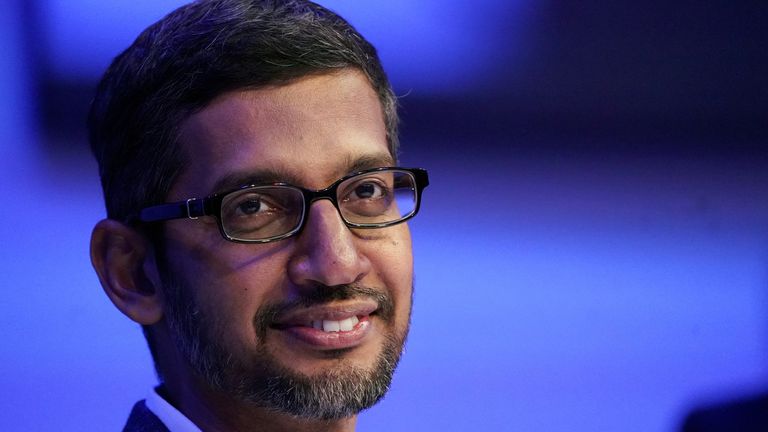Rishi Sunak held a private meeting with the boss of Google on Friday as part of his ongoing discussions with tech leaders about the challenges posed by artificial intelligence.
The prime minister met with Sundar Pichai, the chief executive of Google’s parent company Alphabet, at the Darlington Economic Campus.
They discussed the challenges posed by AI as well as growing the UK’s tech industry and the government’s ambition to make Britain a science and technology superpower.
On artificial intelligence, a Downing Street spokesperson said: “They spoke about striking the right balance to ensure the right regulatory guardrails are in place, whilst driving forward innovation.
“They discussed possible opportunities for industry and international collaboration on safe and responsible AI development and agreed to remain in touch on this issue.”
Mr Sunak has already held talks this week with tech bosses including the CEOs of OpenAI, Google DeepMind, and Anthropic.
The prime minister praised AI as “the defining technology of our time with the potential to positively transform humanity”.
But he also discussed the need to regulate artificial intelligence to mitigate risks, ranging from disinformation and national security to “existential threats”.
The explosive growth of AI and its multiple applications has seen a proliferation of fake AI-generated images, AI photography mimicry and cloned music tracks.
Last week BT Group said it will cut up to 55,000 jobs by the end of the decade amid plans to shift to AI and automated services.
There are growing concerns that the technology could affect jobs and education, while some experts have even warned powerful AI systems “can’t be controlled”.
Read More:
Scientists use AI and underwater microphones to detect tsunamis and earthquakes
AI creates images of the ‘perfect’ man and woman
AI is the key to astonishing breakthrough that allowed paralysed man to walk again
Leaders in science and tech are pushing for greater regulation so the benefits of AI can be utilised while mitigating the risks.
Writing in the Financial Times this week, Mr Pichai called AI “the most profound technology humanity is working on today”, citing medical advances and “its ability to help thousands of Ukrainian refugees… communicate in their new homes”.
He said it AI is “too important not to regulate, and too important not to regulate well”.
It comes amid growing warnings from experts in the field.
Former Government chief scientific adviser Sir Patrick Vallance has warned that AI could have a comparable impact on jobs with the industrial revolution.
And earlier this month Geoffrey Hinton, the man widely seen as the godfather of AI, warned some of the dangers of AI chatbots are “quite scary” as he quit his job at Google.
Despite concerns surrounding AI, the technology has made strides in the scientific and medical fields, including a new test developed to potentially help doctors diagnose heart attacks more quickly and more accurately.
This week it emerged a man paralysed in a cycling accident 10 years ago is now able to walk again because of a wireless digital link between his brain and spinal cord.
Scientists have also used AI to create a system to detect tsunamis and earthquakes.

